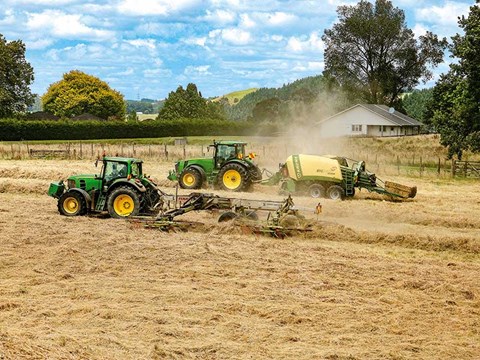In rural communities, the role of rural contractors is vital for the development and maintenance of various infrastructure projects. These contractors bring their expertise, experience, and specialized services to support the needs of rural areas. Whether it’s road construction, agricultural projects, or building maintenance, rural contractors play a crucial role in ensuring the smooth functioning and growth of these communities. In this article, we will explore the responsibilities of rural contractors, their areas of expertise, and address some frequently asked questions about their services.

1. What Are Rural Contractors?
Rural contractors are skilled professionals who offer specialized services in rural areas. They are experts in various fields, including construction, agriculture, road development, and building maintenance. These professionals work closely with local communities, government agencies, and private clients to provide tailored solutions to meet the unique needs of rural areas.
2. The Importance of Rural Contractors
Rural contractors play a crucial role in the development and maintenance of rural communities. Their expertise and services contribute to the growth and sustainability of infrastructure projects, agricultural activities, and overall improvement in the quality of life for residents. Without the assistance of rural contractors, many essential projects in rural areas would be https://agdeals.co.nz/ challenging to execute efficiently.
3. Services Offered by Rural Contractors
Rural contractors offer a wide range of services tailored to the specific needs of rural communities. These services include:
Construction Projects in Rural Areas
Rural contractors specialize in various construction projects, such as building new homes, schools, community centers, and commercial structures. They have the expertise to handle projects from planning and design to construction and completion, ensuring that these projects meet the unique requirements of rural areas.
Agricultural Support and Farm Services
Rural contractors provide valuable support to farmers and agricultural businesses. They assist with tasks such as land preparation, irrigation system installation, farm building construction, and maintenance. These services contribute to the efficient operation of farms and promote agricultural growth in rural communities.
Road and Infrastructure Development
Roads and infrastructure are essential for rural connectivity and accessibility. Rural contractors undertake road construction and maintenance projects, including the building of bridges, culverts, and drainage systems. They ensure that rural areas have well-constructed and safe road networks that facilitate transportation and promote economic development.
Building Maintenance and Renovations
Maintaining and renovating existing buildings is crucial for the longevity and functionality of rural infrastructure. Rural contractors offer services such as building repairs, roof maintenance, painting, and renovations. By preserving and improving existing structures, they contribute to the overall aesthetics and functionality of rural communities.
Environmental Conservation and Landscaping
Rural contractors also play a role in preserving and enhancing the natural environment in rural areas. They undertake projects such as landscaping, erosion control, tree planting, and habitat restoration. These initiatives help maintain the ecological balance and enhance the beauty of rural landscapes.
4. Construction Projects in Rural Areas
Construction projects in rural areas present unique challenges and require specific expertise. Rural contractors are well-equipped to handle these projects, ensuring successful outcomes. Some common construction projects in rural areas include:
Construction of new homes and buildings
School and educational facility construction
Community center and recreational facility construction
Commercial building construction
Infrastructure projects such as bridges and culverts
Road construction and maintenance
Rural contractors bring their experience, skills, and local knowledge to execute these projects efficiently, considering the unique requirements and limitations of rural areas.
5. Agricultural Support and Farm Services
Agriculture is a vital sector in rural communities, and rural contractors provide essential support to farmers and agricultural businesses. They offer a range of services, including:
Land preparation and clearing
Irrigation system installation
Farm building construction and maintenance
Fence installation and repair
Drainage system installation
Livestock facilities construction
By providing these services, rural contractors contribute to the productivity and sustainability of agricultural activities, ensuring that farmers can operate efficiently and effectively.
6. Road and Infrastructure Development
Developing and maintaining a robust road and infrastructure network is crucial for the growth and connectivity of rural areas. Rural contractors undertake various road and infrastructure projects, including:
Road construction and expansion
Bridge construction and maintenance
Culvert installation and repair
Drainage system construction
Street lighting installation
Signage installation
These projects enhance accessibility, facilitate transportation, and promote economic development by connecting rural areas to major hubs and markets.
7. Building Maintenance and Renovations
To ensure the longevity and functionality of existing structures in rural areas, rural contractors offer building maintenance and renovation services. Some common services include:
Routine building inspections
Roof maintenance and repairs
Painting and surface refinishing
Plumbing and electrical repairs
Structural repairs and reinforcements
Energy efficiency upgrades
By maintaining and improving existing buildings, rural contractors contribute to the overall aesthetics and functionality of rural communities, enhancing the quality of life for residents.
8. Environmental Conservation and Landscaping
Preserving the natural environment and enhancing rural landscapes is an important aspect of rural development. Rural contractors engage in environmental conservation and landscaping projects, including:
Tree planting and maintenance
Erosion control measures
Wetland restoration
Habitat creation and restoration
Stormwater management systems
Sustainable landscaping
These initiatives contribute to the ecological balance, improve the visual appeal of rural areas, and provide a healthy and sustainable environment for residents and wildlife.
9. Challenges Faced by Rural Contractors
Rural contractors face unique challenges due to the nature of their work in remote and often challenging environments. Some common challenges include:
Limited availability of skilled labor
Access to specialized equipment and machinery
Weather-related constraints
Limited local resources and suppliers
Geographical and logistical complexities
Regulatory compliance and permits
Seasonal variations in project demand
Despite these challenges, rural contractors strive to deliver quality services while overcoming obstacles to ensure successful project completion.
10. Qualifications and Skills Required
To excel as a rural contractor, individuals must possess a combination of qualifications and skills.